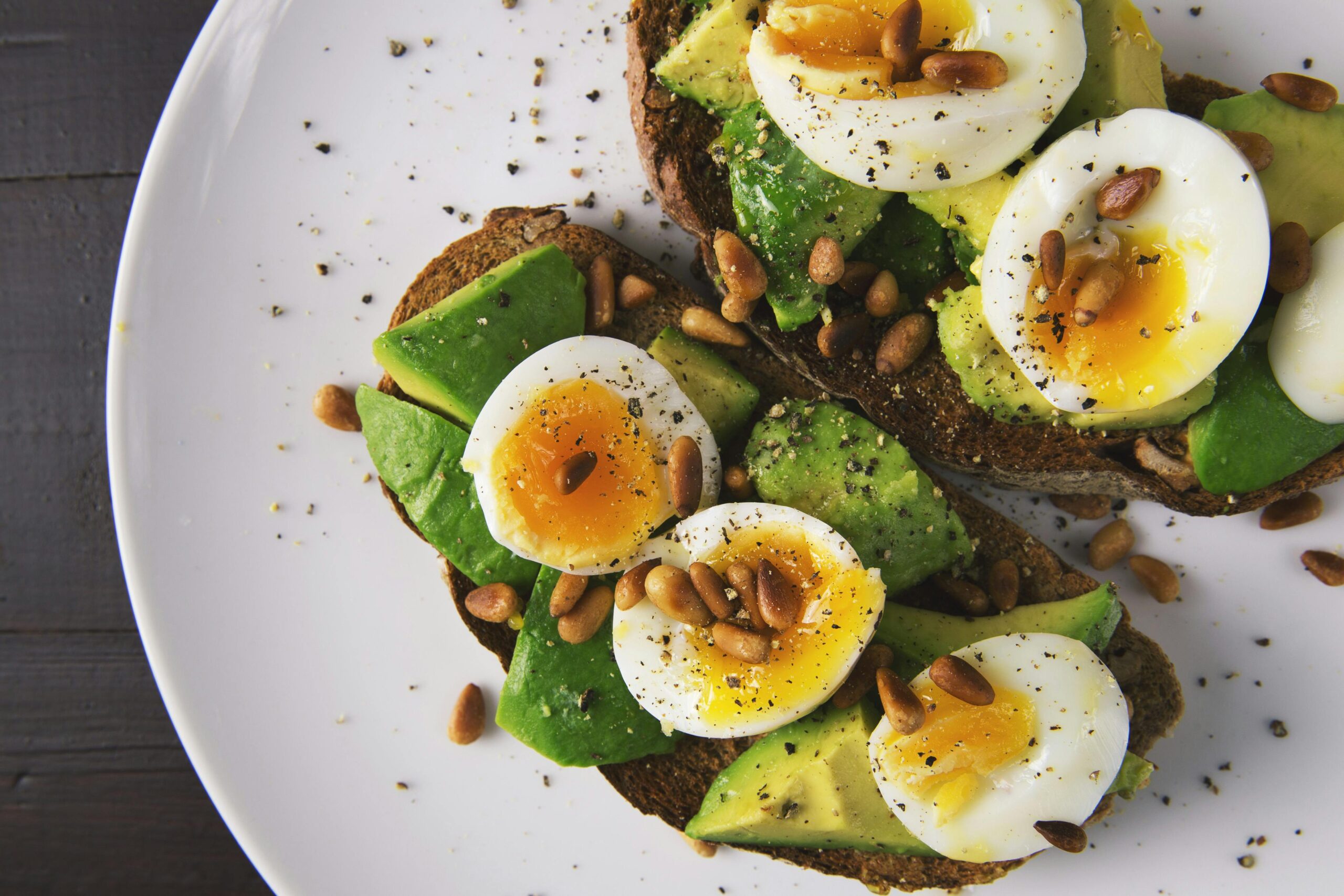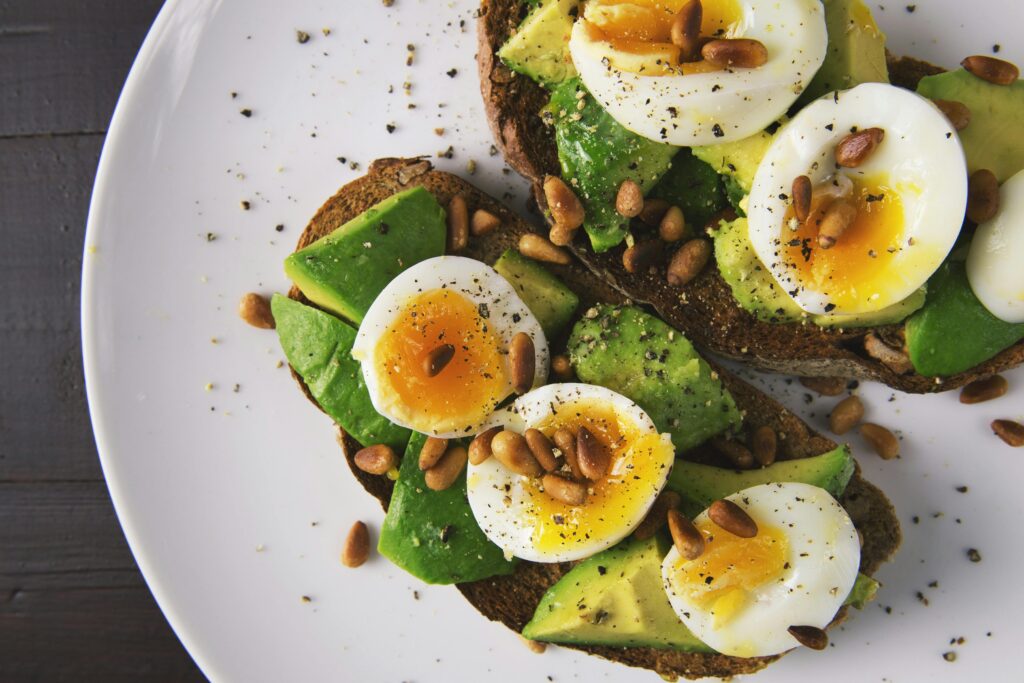How can I improve my diet and nutrition

| # How Can I Improve My Diet and Nutrition? |
| ## Understanding the Basics of Nutrition |
| ### Macronutrients: Proteins, Carbs, and Fats |
| #### Importance of Proteins |
| #### Carbohydrates: The Energy Source |
| #### Healthy Fats |
| ### Micronutrients: Vitamins and Minerals |
| #### Essential Vitamins |
| #### Key Minerals |
| ## Assessing Your Current Diet |
| ### Keeping a Food Diary |
| ### Understanding Your Eating Patterns |
| ### Identifying Nutritional Gaps |
| ## Setting Realistic Dietary Goals |
| ### SMART Goals |
| ### Prioritizing Nutrient-Dense Foods |
| ## Building a Balanced Plate |
| ### The Importance of Portion Control |
| ### The Role of Fruits and Vegetables |
| ### Incorporating Lean Proteins |
| ### Choosing Whole Grains |
| ### Including Healthy Fats |
| ## Healthy Eating Habits |
| ### Meal Planning and Preparation |
| ### Mindful Eating |
| ### Staying Hydrated |
| ## Overcoming Common Challenges |
| ### Dealing with Cravings |
| ### Eating Out Healthily |
| ### Managing Stress and Emotional Eating |
| ## Conclusion |
| ## FAQs |
Article
# How Can I Improve My Diet and Nutrition?
Improving your diet and nutrition is a journey that can lead to better health, more energy, and a happier you. But where do you start? Let’s explore the steps you can take to enhance your dietary habits and ensure you’re getting the nutrients you need.
## Understanding the Basics of Nutrition
To improve your diet, you first need to understand the essential components of nutrition: macronutrients and micronutrients.
### Macronutrients: Proteins, Carbs, and Fats
Macronutrients are the nutrients your body needs in larger amounts. They provide energy and are crucial for growth, metabolism, and other bodily functions.
#### Importance of Proteins
Proteins are the building blocks of your body. They help repair tissues, build muscles, and produce enzymes and hormones. Good sources of protein include lean meats, fish, eggs, dairy products, beans, and nuts.
#### Carbohydrates: The Energy Source
Carbohydrates are your body’s primary energy source. They fuel your brain, kidneys, heart muscles, and central nervous system. Focus on complex carbs like whole grains, fruits, vegetables, and legumes for sustained energy.
#### Healthy Fats
Fats are essential for hormone production, nutrient absorption, and cell growth. Choose healthy fats from sources like avocados, nuts, seeds, and olive oil, and limit saturated and trans fats.
### Micronutrients: Vitamins and Minerals
Micronutrients are vitamins and minerals that your body needs in smaller amounts but are vital for good health.

#### Essential Vitamins
Vitamins are organic compounds that support various bodily functions, including immune function, energy production, and blood clotting. Key vitamins include A, C, D, E, and K, as well as the B-complex vitamins.
#### Key Minerals
Minerals like calcium, potassium, magnesium, and iron are crucial for bone health, muscle function, and hydration. Each mineral plays a unique role in maintaining your body’s optimal function.
## Assessing Your Current Diet
Before making changes, it’s helpful to understand your current eating habits.
### Keeping a Food Diary
Track what you eat and drink for at least a week. This diary can reveal your eating patterns and help identify areas for improvement.
### Understanding Your Eating Patterns
Analyze your food diary to spot trends. Are you eating late at night? Skipping breakfast? Consuming too many sugary snacks? Understanding these patterns is the first step to making positive changes.
### Identifying Nutritional Gaps
Look for any deficiencies in your diet. Are you getting enough fruits and vegetables? Is your protein intake adequate? Identifying these gaps can help you focus on what needs to be added to your diet.
## Setting Realistic Dietary Goals
Setting achievable goals can keep you motivated and on track.
### SMART Goals
Make your goals Specific, Measurable, Achievable, Relevant, and Time-bound. For example, instead of saying “I want to eat healthier,” set a goal like “I will eat five servings of vegetables each day for the next month.”
### Prioritizing Nutrient-Dense Foods
Focus on foods that are high in nutrients but low in calories. Nutrient-dense foods include fruits, vegetables, lean proteins, and whole grains.
## Building a Balanced Plate
Creating a balanced plate ensures you get a variety of nutrients at each meal.
### The Importance of Portion Control
Even healthy foods can contribute to weight gain if eaten in large quantities. Use smaller plates, measure portions, and be mindful of serving sizes.
### The Role of Fruits and Vegetables
Fruits and vegetables should make up about half of your plate. They are rich in vitamins, minerals, and fiber, and low in calories.
### Incorporating Lean Proteins
Include lean proteins like chicken, fish, tofu, and legumes. Proteins help you feel full longer and are essential for muscle repair and growth.
### Choosing Whole Grains
Whole grains, such as brown rice, quinoa, and whole wheat bread, provide more nutrients and fiber than refined grains. They help regulate blood sugar and keep you feeling satisfied.
### Including Healthy Fats
Healthy fats from sources like avocados, nuts, seeds, and olive oil should be part of your diet. They support brain health and nutrient absorption.
## Healthy Eating Habits
Adopting healthy eating habits can make a significant difference in your diet.
### Meal Planning and Preparation
Plan your meals for the week ahead. This helps you avoid last-minute unhealthy choices and ensures you have nutritious options available.
### Mindful Eating
Mindful eating involves paying full attention to your eating experience. Slow down, savor each bite, and listen to your body’s hunger and fullness cues.
### Staying Hydrated
Drink plenty of water throughout the day. Hydration is crucial for overall health and can help control hunger, as thirst is often mistaken for hunger.
## Overcoming Common Challenges
Improving your diet isn’t always easy. Here’s how to tackle some common challenges.
### Dealing with Cravings
Cravings can be a major obstacle. Try to identify the triggers and find healthier alternatives. For example, if you crave sweets, opt for fruit instead of candy.
### Eating Out Healthily
Eating out doesn’t have to derail your diet. Choose restaurants with healthy options, ask for dressings and sauces on the side, and avoid fried foods.
### Managing Stress and Emotional Eating
Stress and emotions can lead to overeating. Practice stress management techniques like exercise, meditation, or hobbies to keep your emotions in check.
## Conclusion
Improving your diet and nutrition is a journey that involves understanding your nutritional needs, assessing your current eating habits, setting realistic goals, and making sustainable changes. Remember, it’s about progress, not perfection. Small, consistent changes can lead to significant improvements in your health and well-being.
## FAQs
1. How can I ensure I’m getting enough vitamins and minerals in my diet?
- Focus on eating a variety of fruits, vegetables, lean proteins, whole grains, and healthy fats. Consider taking a multivitamin if you have specific deficiencies.
2. What are some tips for eating healthier on a budget?
- Plan your meals, buy in bulk, choose seasonal produce, and avoid processed foods. Cooking at home can also save money and allow you to control ingredients.
3. How important is breakfast in a healthy diet?
- Breakfast can kickstart your metabolism and provide energy for the day. Choose nutrient-dense options like oatmeal, yogurt, or eggs.
4. Can I still enjoy my favorite foods while eating healthy?
- Yes, moderation is key. Enjoy your favorite foods occasionally and in smaller portions while focusing on a balanced diet.
5. How do I stay motivated to eat healthy?
- Set realistic goals, track your progress, find a support system, and celebrate your successes, no matter how small.




